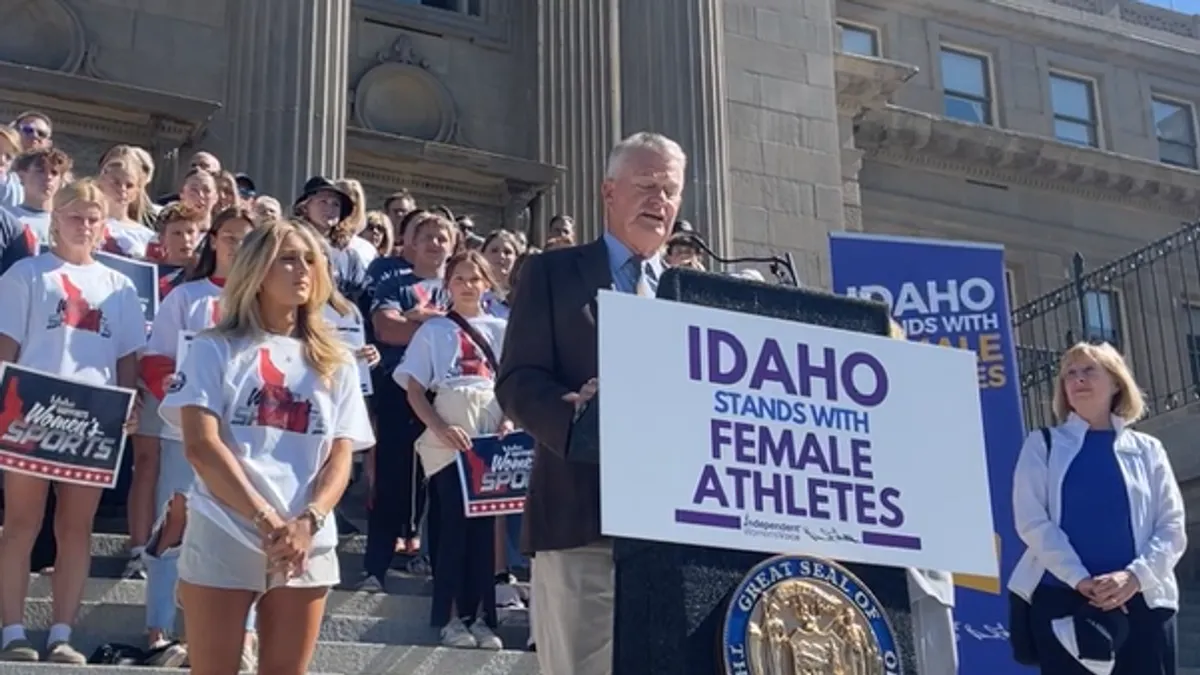Idaho Gov. Brad Little doubled down on his state's opposition to the Biden administration's Title IX rule with an executive order Wednesday — one of the first to be issued against the new regulations that include sex discrimination protections for LGBTQ+ students under the civil rights law.
The order stands independently of a temporary injunction, which currently blocks the rule in the state and could ultimately be lifted. However, a number of other legal considerations — such as the weight given to federal versus state laws, and the Supreme Court's recent ruling in Loper v. Raimondo, which overturned the longstanding Chevron doctrine — could dull its blow.
According to the order, "the Biden-Harris administration's radical redefinition of gender" in the rule released in April "will jeopardize" female student protections. It directs the Idaho State Board of Education to ensure "every female student in Idaho be provided equal opportunity in sports and school to the fullest extent as guaranteed to them under the original Title IX rules and Idaho law."
In March 2020, Idaho became the first state to pass the Fairness in Women's Sports Act, which bans transgender students from competing on athletic teams aligning with their gender identities. However, the law was paused by the 9th U.S. Circuit Court of Appeals after the American Civil Liberties Union challenged it in court. It is currently being appealed to the U.S. Supreme Court.
Similar laws have since been adopted in 26 states, according to advocacy organization Independent Women's Voice. State leaders have also taken other avenues to oppose the rule since its release.
While Idaho's executive order is one of the first signed by a governor directly challenging the Biden administration's rule, leaders in Republican-leaning states urged districts to disregard the final rule through a series of letters and announcements in April.
More than half of states also sued the administration, resulting in temporary injunctions in at least 26 states and a list of over 400 individual schools — including in historically democratic states — that was expanded to cover additional schools on Wednesday.
Despite conservative states winning in the district and appellate courts, the U.S. Department of Education has been resolute in its attempt to implement the rule. Following injunctions from the lower courts, the Biden administration asked the U.S. Supreme Court to allow it to implement at least the uncontested portions of the rule unrelated to LGBTQ+ protections. That request, however, was denied.
As a result, the new rule is only in effect in 24 states, and the 2020 rule remains in effect in the 26 states — and hundreds of specific schools — with injunctions.
Ultimately, the Biden administration expects the Supreme Court may have to weigh in on the rule itself, it said in its emergency application to the high court last month.














